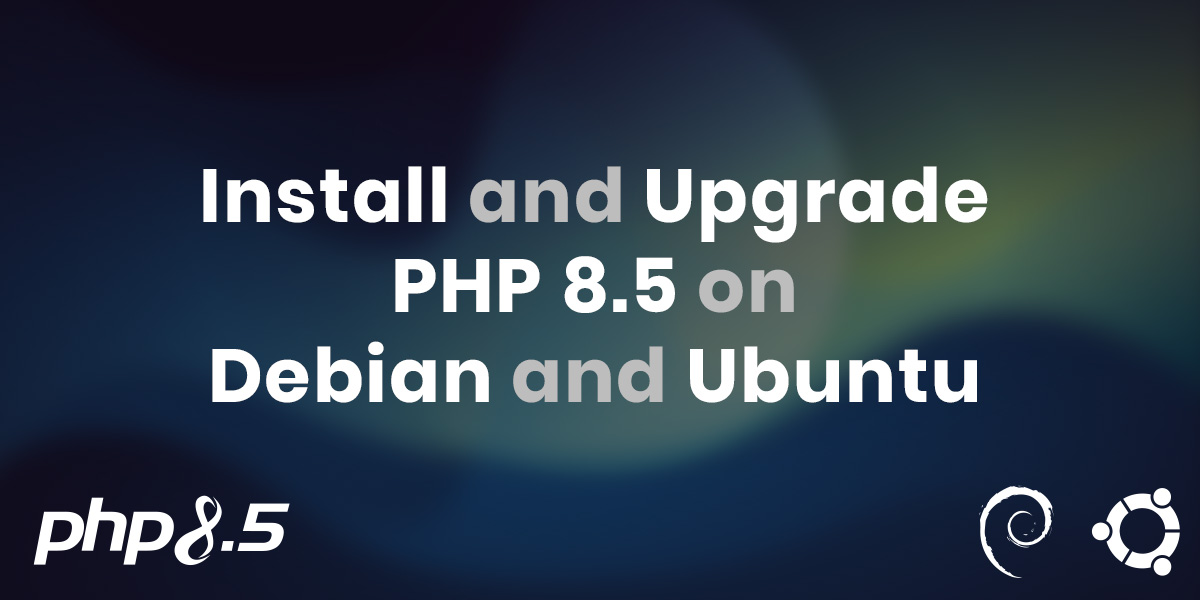AEGIS Encryption with PHP Sodium Extension
 AEGIS is an AES-based family of authenticated encryption algorithms that are significantly faster than ubiquitous algorithms such as AES-GCM and CHACHA20-POLY1305. The Sodium extension in PHP 8.4 supports
AEGIS is an AES-based family of authenticated encryption algorithms that are significantly faster than ubiquitous algorithms such as AES-GCM and CHACHA20-POLY1305. The Sodium extension in PHP 8.4 supports AEGIS-128L and AEGIS-256 encryption algorithms if the Sodium extension is compiled with libsodium 1.0.19 or later.
The two encryption algorithms in the AEGIS family, AEGIS-128L and AEGIS-256, are 2-3 times faster than AES-GCM, and 3-4 times faster than the CHACHA20-POLY1305 algorithms. They leverage hardware AES acceleration on x86_64 and aarch64 (64-bit ARM architecture) CPU architectures.
The AEGIS paper provides detailed information about the inner workings of the algorithms.
AEGIS Availability on PHP
AEGIS family of encryption algorithms is available on PHP when:
- PHP versions 8.4 and later and
- Sodium extension compiled with
libsodium1.0.19 and later and - on
x86_64oraarch64CPU architectures
To check if AEGIS is available on PHP, check for the availability of one of the AEGIS functions:
if (function_exists('\sodium_crypto_aead_aegis128l_encrypt')) {
// AEGIS available
}See PHP 8.4: Sodium:
AEGIS-128LandAEGIS-256support for all new AEGIS functions and constants added in PHP 8.4.
AEGIS-128L
AEGIS-128L can theoretically encrypt data lengths below 2^64 bits, and uses a 128-bit key. It is the only symmetric encryption algorithm in Sodium extension that uses a 128-bit key, while the others use a 256-bit key.
It also takes a 128-bit nonce value, which must be provided to decrypt.
The following is an example of generating a key, and nonce, encrypting data with additional data, and decrypting it:
// generate a random key of sufficient length (16 bytes)
// This value must not be public.
$key = sodium_crypto_aead_aegis128l_keygen();
// Generate random nonce value of SODIUM_CRYPTO_AEAD_AEGIS128L_NPUBBYTES length (16 bytes).
// This value should be stored along the encrypted text, but is not required to be private
$nonce = random_bytes(SODIUM_CRYPTO_AEAD_AEGIS128L_NPUBBYTES);
// Additional data. This can be a user ID, email address, or empty.
$additional_data = '';
// Message to encrypt
$message = 'Hello';
// Encrypt
$ciphertext = sodium_crypto_aead_aegis128l_encrypt($message, $additional_data, $nonce, $key);
// Decrypt
$decryptedMessage = sodium_crypto_aead_aegis128l_decrypt($ciphertext, $additional_data, $nonce, $key); // "Hello"AEGIS-256
AEGIS-256 uses 256-bit keys, and can encrypt data lengths below 2^64 bits. With some exceptions, AEGIS-256 is about 20% more computationally intensive than AEGIS-128L.
The following is an example of generating a key and a nonce and encrypting and decrypting a plain text message to a ciphertext and back using additional data:
// generate a random key of sufficient length (32 bytes)
// This value must not be public.
$key = sodium_crypto_aead_aegis256_keygen();
// Generate random nonce value of SODIUM_CRYPTO_AEAD_AEGIS128L_NPUBBYTES length (32 bytes).
// This value should be stored along the encrypted text, but is not required to be private
$nonce = random_bytes(SODIUM_CRYPTO_AEAD_AEGIS256_NPUBBYTES);
// Additional data. This can be a user ID, email address, or empty.
$additional_data = '';
// Message to encrypt
$message = 'Hello';
// Encrypt
$ciphertext = sodium_crypto_aead_aegis256_encrypt($message, $additional_data, $nonce, $key);
// Decrypt
$decryptedMessage = sodium_crypto_aead_aegis256_decrypt($ciphertext, $additional_data, $nonce, $key); // "Hello"AEGIS Performance against AES-GCM and CHACHA20-POLY1305
The AEGIS family of encryption algorithms has an encryption rate about two to three times faster than the current recommended AES-GCM algorithm. For example, moderate consumer hardware encrypts data in AES-GCM at a rate of about 2.3 GB/sec, while AEGIS family of algorithms encrypts at a rate of 4.5-5.0 GB/sec.
The following benchmark results are from a benchmark run on an AMD Ryzen 4800H CPU, an x86_64 CPU with AES-NI CPU instructions.
For the Data rate benchmark, a 20 MB block of random bytes was encrypted using five algorithms supported in Sodium extension, and taking the average of 100 iterations. This excludes the time it took to generate the nonce and the key.
The Operations/second benchmark encrypted 1 KB of data, taking the average from 1 million iterations. Similar to the Data rate benchmark, it excludes the RNG time.
| Algorithm | Data Rate (GB/sec) | Operations/sec |
|---|---|---|
| aes256gcm | 2.31 GB/sec | 1,168,300 ops/sec |
| chacha20poly1305 | 1.29 GB/sec | 738,411 ops/sec |
| chacha20poly1305_ietf | 1.28 GB/sec | 746,409 ops/sec |
| xchacha20poly1305 | 1.28 GB/sec | 692,764 ops/sec |
| aegis128l | 4.99 GB/sec | 1,925,310 ops/sec |
| aegis256 | 4.61 GB/sec | 1,771,924 ops/sec |
AES-NI instructions. It is mostly low-end mobile devices and other low-powered devices such as embedded devices that will not have the AES-NI instructions. However, majority of servers that PHP runs on will likely be CPUs capable of reaching similar speeds as shown in the benchmark results above.


